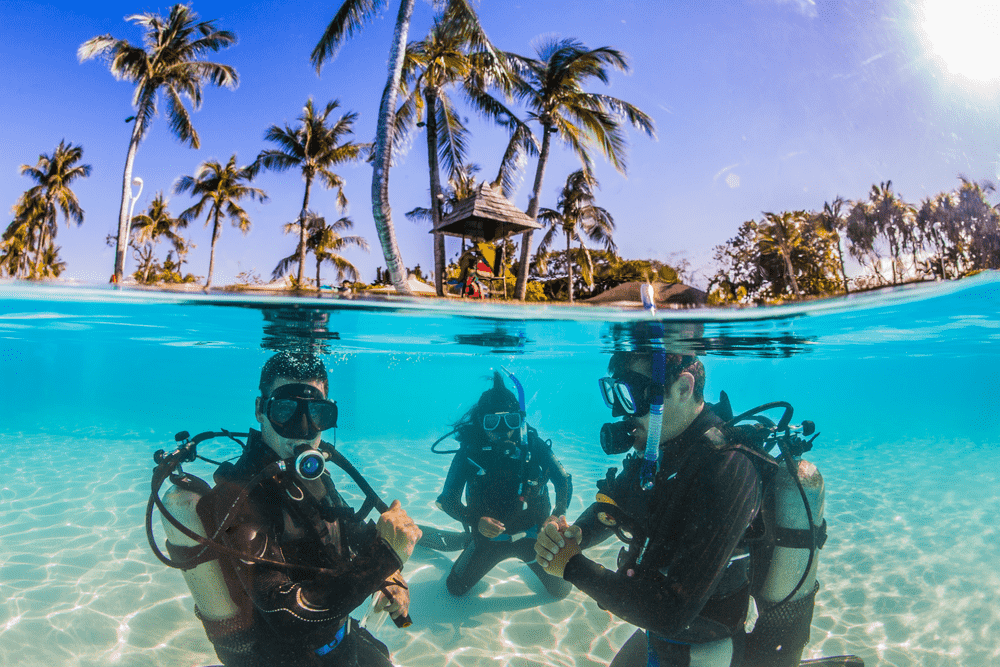*This post may contain affiliate links. As an Amazon Associate we earn from qualifying purchases.
Our planet may have many interesting places to travel to, but none is as exciting and thrilling as diving under water, beneath the surface of the earth. Majestic scenes and picturesque imagery not only exist above the earth’s surface, but below it as well. There’s a whole different world underwater that never ceases to surprise. The aquatic world is still relatively unexplored and untouched by humans, which is why we have created this scuba beginners guide. Exploring the beauty underwater is an exciting adventure. We will give you the Scuba beginners guide to help you go into the deep and experience ocean.

Unfortunately, it is not easy to discover the wonders that the underwater world has in store for us. As we humans are not designed to be able to breathe underwater, in order to fully enjoy the experience, careful planning and execution is of paramount importance. In addition to that, possessing proper equipment is vital, as any shortcomings in this department may end up putting your life at risk.
One of the best ways to observe and appreciate marine life is scuba diving, which is arguably the best and the safest way to get up close and personal with aquatic life. In this scuba beginners guide, you will learn what scuba diving is, how to start off with this wonderful activity, and some vital tips and techniques that you can follow to make yourself well acquainted with scuba techniques.
SCUBA Beginners Guide: What is SCUBA and How Do You Get Started?
Scuba diving is a leisurely activity that involves diving underwater to observe and interact with the environment. SCUBA is an acronym for Self-contained Underwater Breathing Apparatus and refers to a separate oxygen supply that lets people breathe underwater. People indulging in scuba diving carry a personal supply of oxygen in the form of a cylinder mounted on their backs.

The oxygen is delivered to the divers via a facial mask that they wear. Being able to breathe underwater essentially extends the amount of time the divers can be underwater without having to hold their breath. It also rewards the divers with more freedom and independence to move around and observe the vast and exciting marine world.
Most people dream of scuba diving but refrain from making that dream a reality. Most don’t know how to get started or where to find more basic information. This scuba beginners guide will help you out with that by clearly laying out the steps you’ll have to take to start learning how to scuba dive. The next segment in this scuba beginners guide will enlighten you about how you can get started.
Satisfy Physical Prerequisites
Scuba diving is not a rigorous activity and doesn’t require a very high level of physical fitness. People of all ages can learn to dive provided that they’re comfortable being in water. Although a basic physical fitness level is adequate, people with certain medical conditions are generally not permitted to partake in the activity.
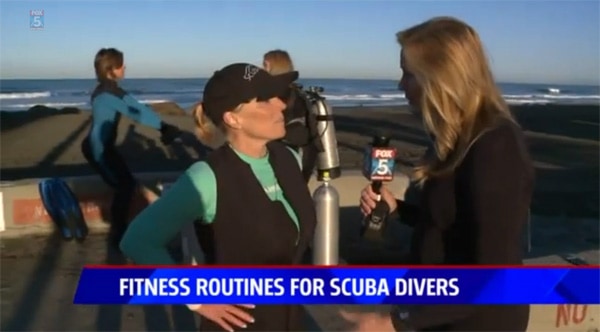
For instance, people with lung problems like asthma, issues with the ear, or exposure allergies may not be cleared to undergo training. Therefore, it is recommended that you read, understand, and then honestly answer the medical questionnaire before enrolling yourself for a scuba diving course.
Choose an Appropriate Diving Course
A scuba beginners guide such as this one can give you the basic information you need to understand this activity. However, only a diving course can help you truly appreciate and comprehend all the nuances involved. Choosing a course depends on your level of knowledge, know-how, and the experience you have with scuba diving. For instance, if you’re already familiar with properly checking and operating diving gear and are well-versed with the safety guidelines, you’d be better off choosing an intermediate course.
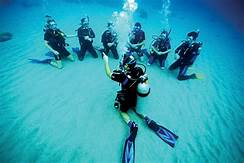
If you’re a complete novice, you can opt for one-day courses that bring you up to speed on the basics, or a course that offers trial dives, where you’re allowed to practice in a controlled environment such as a swimming pool. If you are a person who wishes to take up scuba diving professionally, you can even enroll yourself in an open water certification course that certifies a diver for life.
Learn the Theory behind Diving
Unlike the air on the surface of the earth, water exerts greater pressure. The deeper you go into the water, the greater the pressure exerted on you. This will surely affect a person in more ways than you can imagine. Therefore, knowing the physics behind diving and underwater environments is of utmost importance, as it will ultimately help you be safe.
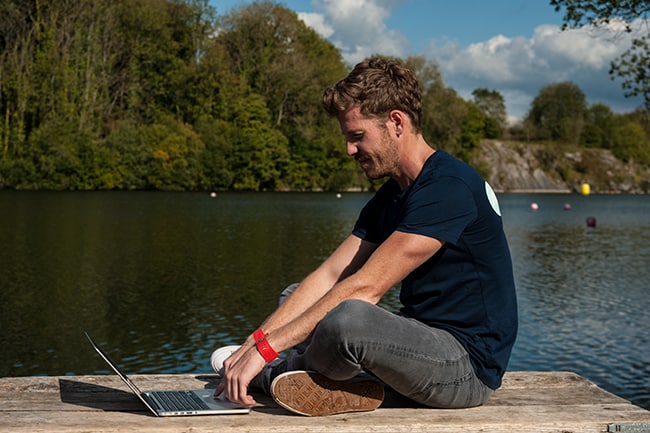
There is some foundational knowledge about buoyancy, pressure, equalizing inner ear pressure, nitrogen absorption, and no-decompression limits that you need to know.
Practice with a Trainer
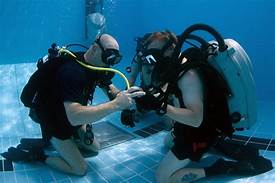
Nobody becomes a professional scuba diver overnight. It is with practice that you develop and hone your skills. Practicing with or under the supervision of a certified trainer is bound to help you gain confidence and mastery in scuba diving. Apart from just training you, a certified instructor will also give his input on how to manage certain situations that you might encounter during your diving session, such as a shark or a large school of fish. Once you’re fully trained and fit to dive, you can even go on a scuba dive with your trainer to gain some much-needed hands on experience.
Get Your Questions Answered
Most beginners and first-time divers usually shy away from asking any questions that they might have due to the fear of embarrassment. When it comes to scuba diving, there’s no such thing as a stupid question as anything could go wrong when you’re deep underwater. If the answer that the trainer gives you is not satisfactory, do not refrain from asking him or her to explain it to you in a different way. You can also take a look at online videos or look up a scuba beginners guide. Always remember, it is better to remain safe than sorry.
What Equipment Is Needed for Diving?
When it comes to scuba diving, you can’t just get on a boat and go out into the sea and dive down. Firstly, you’ll need to procure the right equipment. With regard to diving equipment, quality should always be given preference over style or price. It is highly recommended that you do not skimp on spending for some good quality equipment, as it not only will help you relax and focus on the exciting things that are under the water but will also keep you safe and secure.
No scuba beginners guide is complete without the mention of some of the basic scuba diving equipment you’ll need to get:
1. Mask and Snorkel
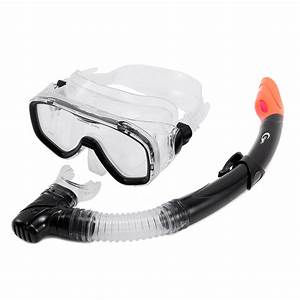
The first thing that you’ll need is a good mask and snorkel. The mask covers your eyes and allows you to see underwater. There is also a nose pocket that completely covers your nose so that the pressure in your inner ear can be equalized when diving. The snorkel allows you to breathe through it when you’re at the surface, thereby eliminating the need to use the air in the tank. Try on different masks before choosing the one that fits you the best, as the mask must create a perfect seal and not have any leaks.
2. Fins
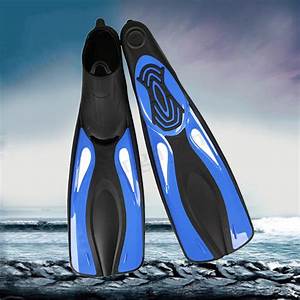
Getting a pair of fins should be the next thing on your list, as they improve movement when you’re underwater. They allow you to swim freely without having to exert too much force or expend too much energy. This helps you navigate underwater currents and other tricky areas. There are two different types of fins: closed heel fins and open heel fins. Closed heel fins are recommended as you won’t have to wear booties (a type of dive boots) along with them, thereby eliminating the need for an additional piece of equipment. Remember to try different pairs of fins for a snug fit before purchasing them.
3. Wetsuits
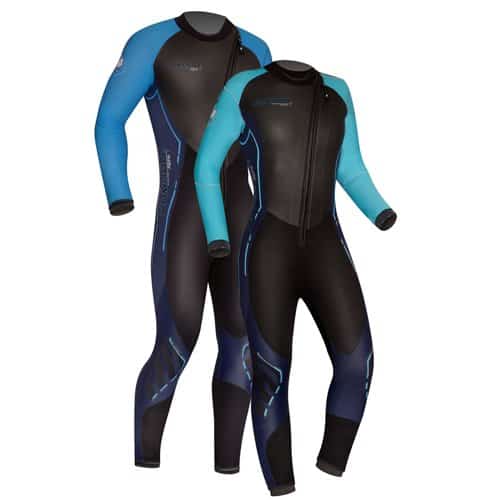
Also known as exposure suits, wetsuits are primarily made from neoprene and are used to retain body heat. They do so by trapping a layer of water between your body and the suit, which then gets warmed up from your body’s heat. Apart from providing you with much-needed warmth, the wetsuit also protects your body from scrapes, cuts, and scratches. These suits are available in different thicknesses making them suitable for a wide range of water temperatures. Purchasing a full body wetsuit is preferable as it can also act as a sun blocker and protect your skin from harmful UV rays.
4. Air Tank
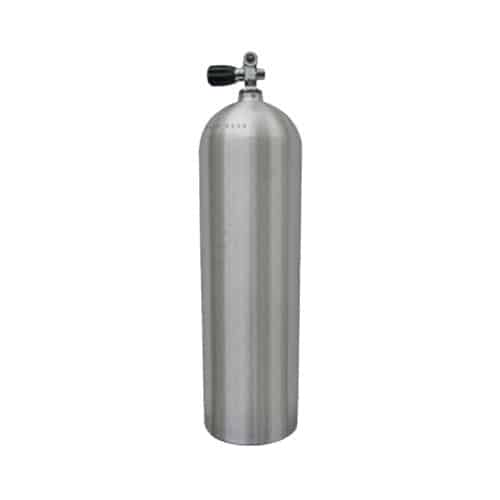
Every scuba beginners guide will tell you that the most vital piece of equipment that a diver should get is an air tank. These tanks contain compressed air (at about 3000psi) which is delivered to the diver via a mouthpiece. The composition of the compressed air is the same as that of the regular air that we breathe. In order to reduce the weight that bogs down the diver, most tanks are made of light-weight materials like aluminum or steel. As they come in various sizes and capacities, choosing one that fits your needs and requirements is essential.
5. Buoyancy Compensator (BC)
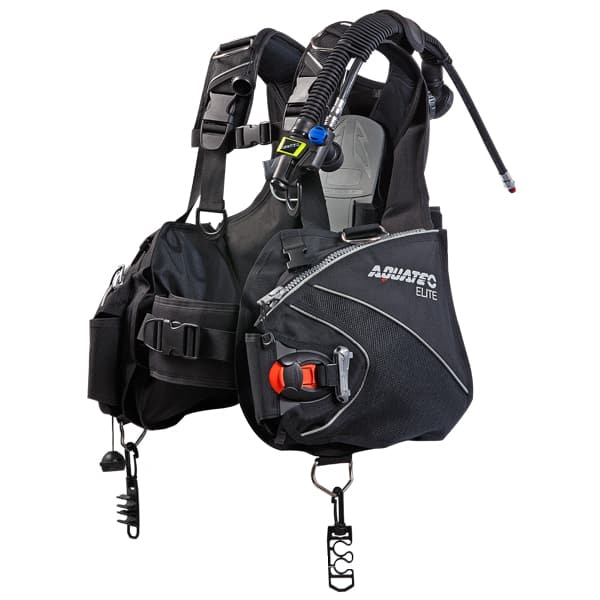
Also known as a Buoyancy Control Device (BCD), the BC is basically a jacket-like backpack that is worn by the diver and to which the air tank is strapped. The BC has air pockets that can be inflated or deflated at will using just a button. This lets you either ascend to the surface of the water or descend below it. It also acts as a support for the tank. Most BCs have a mouthpiece so you can manually inflate them.
6. Regulator
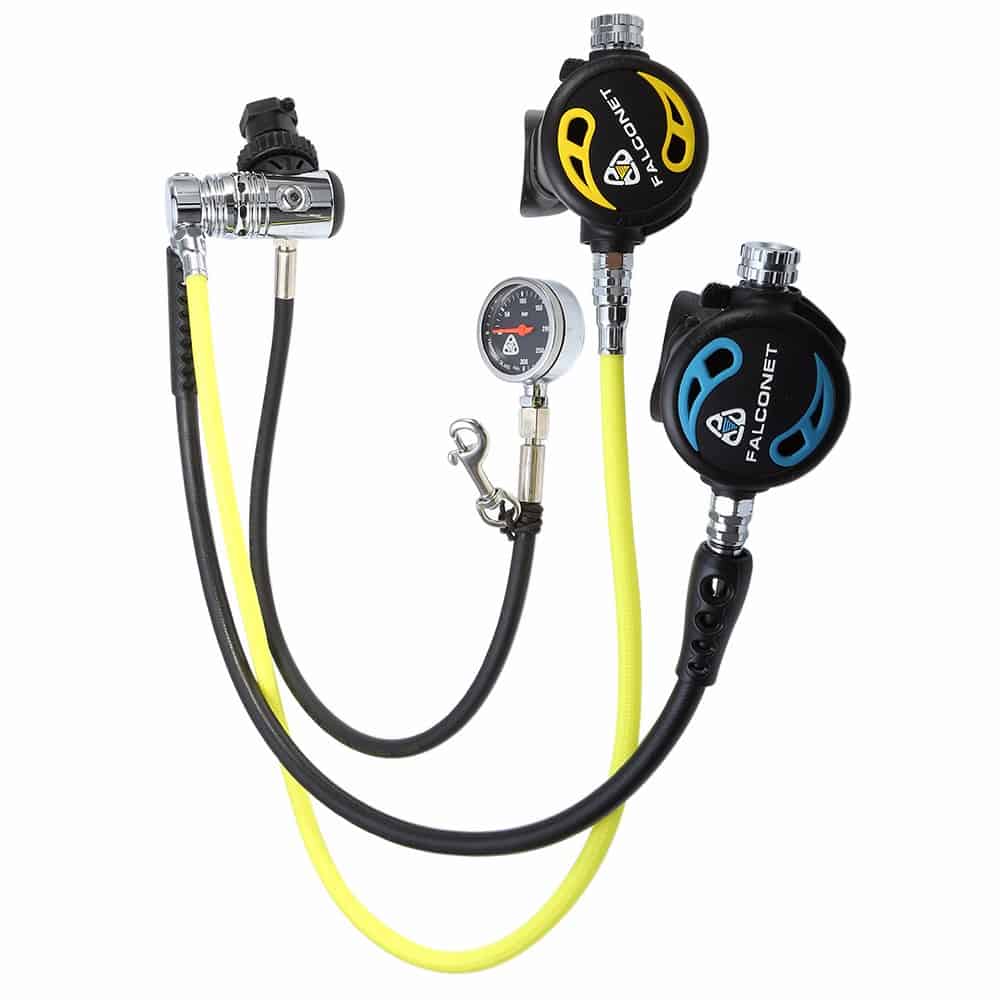
The regulator is connected to the top of the tank and reduces the pressure of the compressed air in the tank from 3000 psi to a more breathable level of around 140 psi. Regulators normally come in a bright yellow color so as to be easy to identify and use. Most regulators come with a backup regulator that has a longer hose that can be used either by you or by others in case of an emergency.
7. Dive Computer
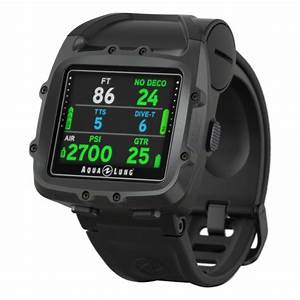
The last (but certainly not the least) item on the list of essential gear in this scuba beginners guide is a dive computer. With the latest advancements in technology, you can get a dive computer in the form of a wrist watch that can be worn while diving. It is an advanced piece of equipment that displays a host of information such as the depth, no-decompression limit, the safety stop, and even the amount of air left in your tank. Some models can even record your dive and create a dive profile for you.
Once you start gaining experience, you might want to expand your repertoire of equipment by adding some more accessories such as diving lights, a dive knife, and a dive case among others.
Tips and Techniques for Beginning Divers
Next up in this scuba beginners guide are some of the tips and techniques that first-time divers and beginners need to follow in order to have a pleasant experience.
Use Your Legs
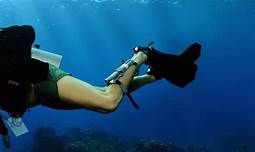
Knowing how to swim is not necessary for scuba diving. When it comes to scuba diving, the most efficient way of traveling is by kicking your legs because you’re equipped with fins. But, this is where most beginners slip. They try to kick their legs from the knees rather than from the hips. When kicking from the hips, your body is more streamlined and does not displace more water than necessary. This helps you to conserve more energy and consequently saves your air supply from getting depleted too quickly.
Test Your Equipment
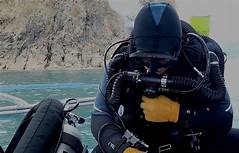
Before heading out for a diving session, always make sure to inspect your equipment for any damage or leaks. This will ensure that your gear is constantly in working order. Also, before putting them on, clean out your mask and snorkel and apply a little bit of defogger liquid so that there’s no disruption to your vision when you’re underwater.
Checking buoyancy while still on the surface will guarantee that you do not ascend or descend suddenly or involuntarily. Thoroughly examine your air tank to see if the gauges are displaying the correct information and whether the tank contains the required amount of air. You do not want to get caught with low levels of oxygen when you’re deep underwater.
Learn to Relax
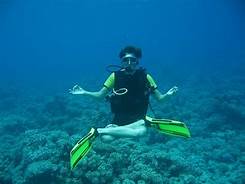
Panicking only makes things worse, and more so when you’re underwater. Deep and controlled breaths are the main foundation of scuba diving, and panicking only serves to achieve the opposite. You use less air when you’re relaxed and breathing in a slow, controlled fashion. When you start to panic, your breathing becomes faster, heavier, and erratic.
This burns up more air in your tank, eventually putting you in a precarious situation or causing you to cut your diving session and ascend to the top,. You can avoid this by practicing your breathing during your free time. Also, meditating regularly keeps your mind calm and decreases your stress levels, thereby reducing the chances of having a panic attack while deep under the water.
Plan Your Dive
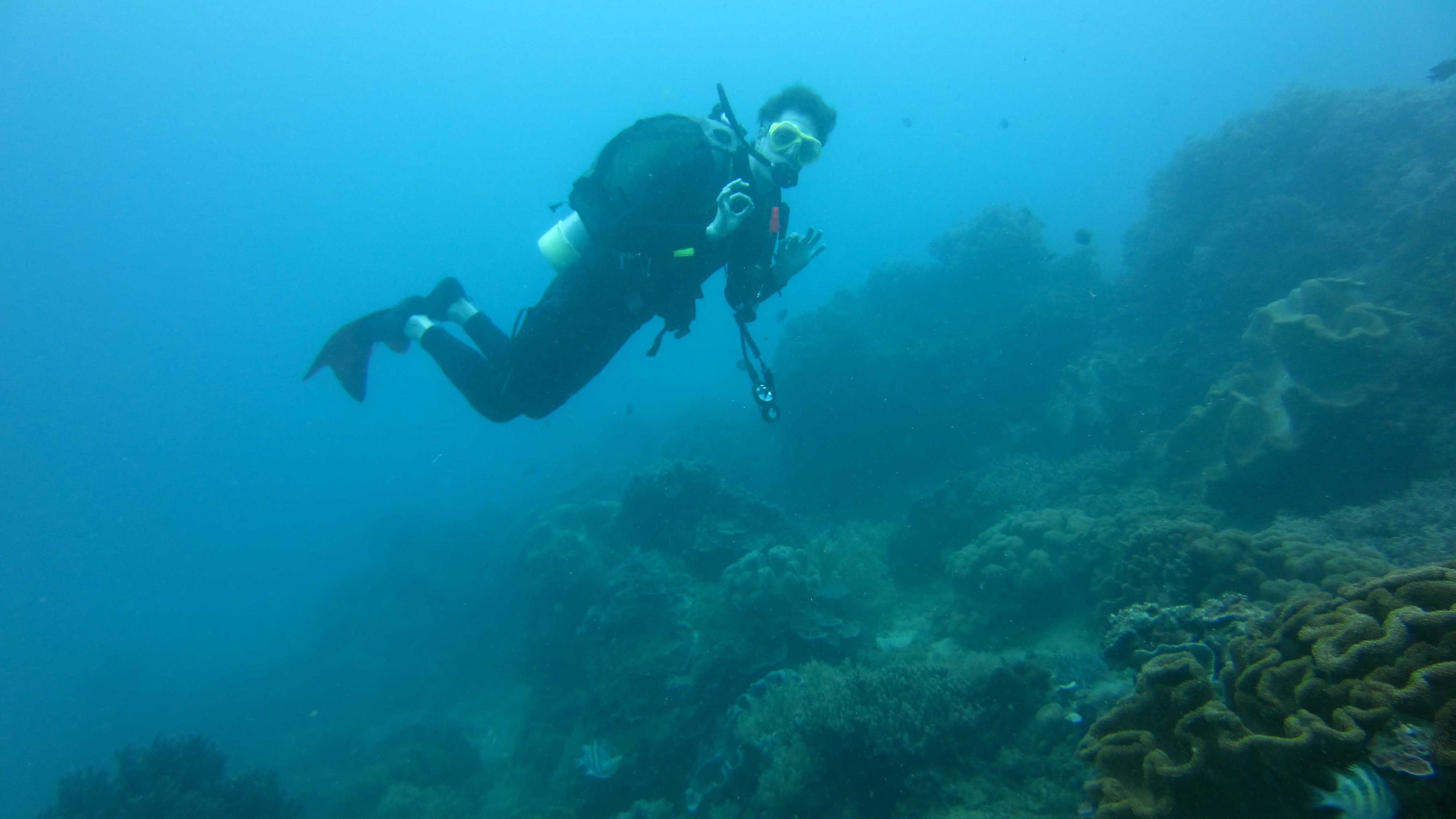
Always make a plan even if you’re going out for a short dive. Choose the right diving site that caters to your skills and confidence, because pushing yourself out of your comfort zone can quickly put you in danger. Mark your entry point and keep a minimum of two or more exit points as they might come in handy when you’re in a tough spot. Also, when planning the dive, take into account the timing of the dive, the geographical conditions, and the weather patterns. The best time to dive for beginners is mid-day as this offers the maximum amount of visibility.
Clear Out Your Ears
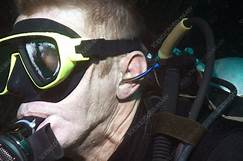
When diving underwater, your ear tends to get blocked. Blocked ears can cause a great deal of pain and might push you to cut your session short. Fortunately, there’s a simple technique that you can use to clear your ears frequently. Doing the Valsalva maneuver will help you equalize your ears to the ambient pressure.
To do this, you need to first close your mouth and nose and start off by moderately exhaling against the closed airways. This will pressurize the middle ear and clear out the blockage. But you have to be careful when doing this maneuver as it can damage your hearing if done incorrectly. Be sure to ask for advice and help from those more experienced in scuba diving before you try it.
Conclusion
Now that you’ve read this scuba beginners guide, you’ll have a fair idea of what to expect when going out for a dive. Always remember to take your time when making decisions and do not hurry through them. If at any stage you feel uncomfortable, do not force yourself to proceed further. Back off and try again later.
Do not let yourself or anyone get you down just because you have changed your mind, as safety should always be the prime concern. In addition to using scuba beginners guide, make good use of online videos and tutorials to help you understand the activity better. Then find a training course that’s right for you.

